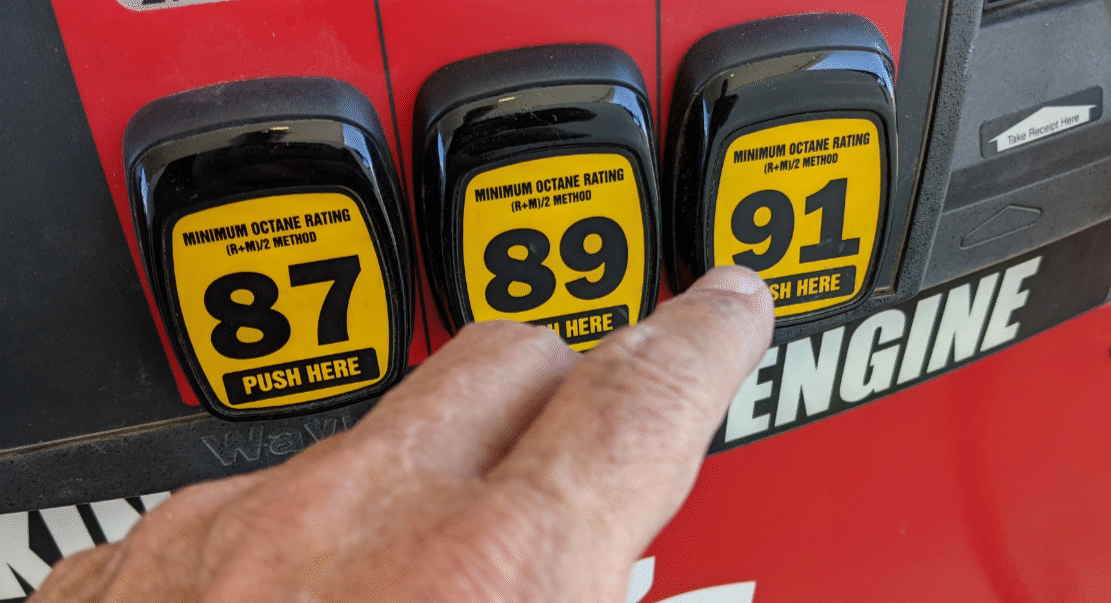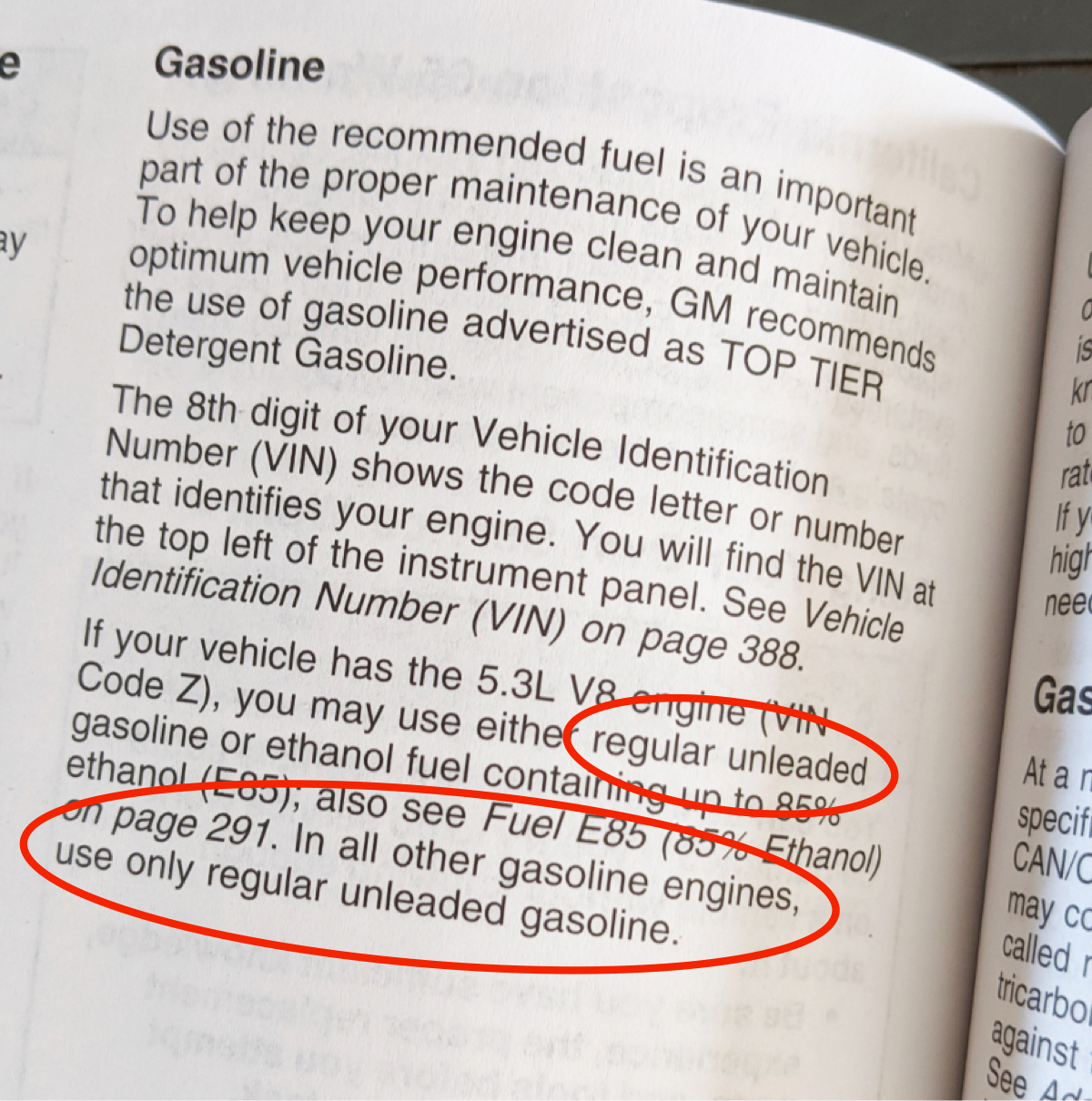
Premium gas is higher quality extra special super gas that will make your ordinary vehicle run forever and perform like a race car, no? No.
What is premium gas?
Let’s start with a little physics. Solids, liquids and gasses heat up when they’re compressed. The fuel-air mixture in the cylinders of an engine can be compressed so much that it gets hot enough to spontaneously ignite. That’s what happens in diesel engines—on purpose. Gasoline engines don’t compress the fuel-air mixture as much and use spark plugs to ignite the mixture. Spark plugs fire at just the right moment. This is called ignition timing. If the fuel-air mixture is ignited too late, power is reduced and fuel is wasted. Ignite it too soon and you could damage the engine.
High-performance engines use premium gasoline. Premium gas doesn’t cause high performance. It keeps high-performance engines from damaging themselves. High-performance engines are high-compression engines. Their compression ratios are close to the point that can cause premature spontaneous ignition—also known as knocking or pinging. To prevent that, special additives raise the fuel’s ignition temperature. Basically, premium gas—high-octane gas—is a little harder to burn.
Is it for you?
What does this mean for you and your rig? High-octane gasoline will do little more than empty your wallet faster unless the manufacturer specifies it, or if your engine is frequently running under heavy loads, like when you’re towing or just carrying a lot of weight. Uphill. Into the wind. In hot weather.
Now, the case can be made that with modern computer controlled engines which constantly monitor and control engine functions, that have knock sensors, variable ignition timing, and fuel injection that optimizes the fuel-air mixture on the fly, you can squeeze a wee bit more power from your standard-issue engine. But higher power results in higher consumption of higher priced gasoline. Ain’t no free lunch.
Some people say they get higher gas mileage with premium gas. But does the higher mileage offset the higher price? Premium prices run from 10 to 15 percent higher than regular. So are you getting 10 to 15 percent higher gas mileage?
But isn’t premium gas somehow better quality than regular? Probably not. All the gas delivered to any particular station came from the same refinery with the same quality standards. If a station has crappy regular gas, its premium gas will be no better. It will just have a higher ignition temperature and higher price.
So, dig out your owner’s manual, or search online, and see whether your manufacturer says you need premium gasoline. Here’s what the manual for my 2007 Chevrolet Express 2500 says:


I just use 85 rating at high altitude but use Lucas fuel stabilizer most of the time at lower elevation I use 87 this is what my manual says
Our 1996 ExpeditionVehicle has a Cummins 505ci.
Should we use premium diesel for performance and longevity?
What does your owner’s manual say?
Freeda runs equally well no matter what grade I put in her, so I continue to use the lower-grade & get her regular checkups. I’m like so many other adventurers in that I’m on a tight budget. The extra cost of premium versus regular doesn’t help my mileage any. Thanks for the great article, Al!
I had a ford 6.0 litre diesel and the mileage would drop 4-5 mpg when I used diesel from the discount fuel dealers. If I stayed with the major companies all was fine. I now have Cummins 6.7 litre but still stay away from the discount guys.
Premium gas does have a different additive package than the lower grades, you may see the gas all coming from the same refinery but the package is often added from the truck at the tank. Is the package worthwhile? Maybe, maybe not.
I did extensive tests with my Toyota Tundra pulling a 20 foot trailer and found that premium gas made almost no difference to the mileage and the results were not consistent, it takes 87 according to the manual. I always felt that it sounded better on premium but nothing I could quantify. I definitely got 3-4mpg better mileage buying the premium names over the convenience store gas.
Now I’m driving a Silverado 2500HD with the Duramax diesel engine and pulling an 11,000lb fifth wheel, results are all over the place as far as mileage goes, no consistent information.
I have a 99 4Runner and put 87 in it. It runs fine still. When I look at other vehicles I always check what octane is recommended. I avoid any that say Premium Gas – such as some of the Nissan cars.
I do add stabilizers and additives every 4-6 months and my old silver ghost is doing fine.